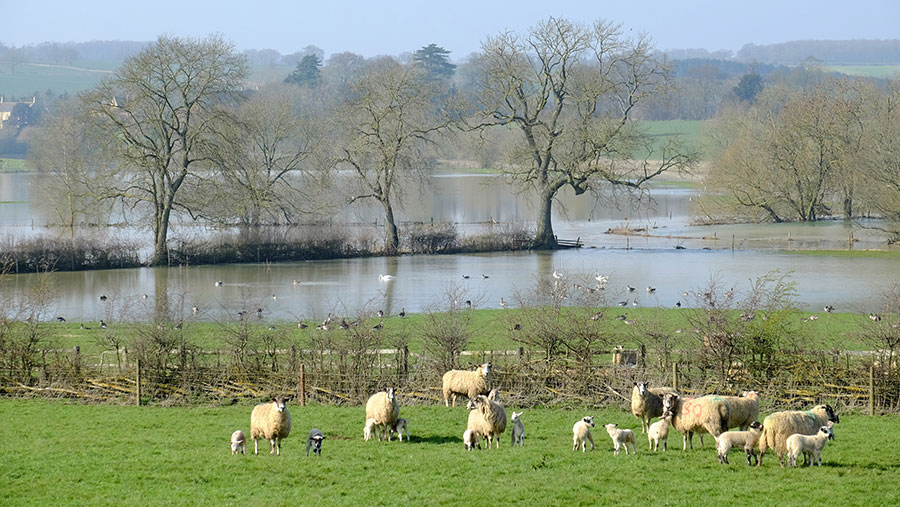Empower farmers to carry out water and flood management – CLA
 © Tim Scrivener
© Tim Scrivener Government agencies must work more closely with farmers and landowners, and empower them to carry out low-risk flood defence work, according to a new report released by the Country Land and Business Association (CLA).
The recommendation is contained in the landowner lobby’s new report – A CLA Water Strategy: A Vision for the Water Environment – which was published on Friday 18 June.
The report says the first few months of this year have shown that climate change is having an increasing effect on farming, with frequent episodes of flooding, followed by intense periods of dry weather.
See also: Farmers need key role in water management – NFU
Some farms were submerged in water for more than three months this winter, which prevented farmers from drilling crops. One of the driest Aprils on record was then followed by one of the wettest Mays on record.
With winters getting milder and wetter due to climate change, the Met Office predicts that the risk of floods has increased by at least 20% and up to 90%.
The CLA report finds that under the right policy framework, landowners could play a key role in improving the wider water environment by harnessing nature-based solutions, at comparatively low cost.
Many landowners are already stepping up to protect their local communities, but they are often crippled by uncertainty about whether they can undertake the maintenance work themselves.
Natural projects
The report says landowners using their land to mitigate flood risks through natural flood risk management projects has been proven to be extremely successful.
These projects can involve creating wetlands and salt marshes, or planting trees to stabilise riverbanks, with the aim of slowing the flow of water. This helps water absorption, while also improving biodiversity, water quality and availability, and carbon storage.
“The solution to flood defences is sitting right on our doorstep at a fraction of the price of new infrastructure: natural flood risk management,” said CLA president Mark Bridgeman.
The CLA also argues that community-supported groups such as internal drainage boards, or locally led partnerships like the Somerset Rivers Authority are often far better placed than the Environment Agency or Natural Resources Wales to maintain main rivers, so these organisations should be allowed to take over responsibility for main rivers across England and Wales.
“We want to see the Environment Agency and Natural Resources Wales uphold their responsibilities for essential maintenance, and where they are unable to adequately maintain flood defences, to transfer responsibility to the best-placed organisation to do so,” added Mr Bridgeman.
“In some circumstances, this will be to local internal drainage boards, specially established flood risk partnerships such as the Somerset Rivers Authority, or, where appropriate, local land managers. Many of these land managers already play a crucial role in using their land to prevent local communities and businesses bearing the brunt of flood damage.”
Support needed
But to empower landowners and support them to protect local communities and mitigate flood risk, the government needs to provide adequate support through policy.
Under existing agri-environment schemes, many landowners are engaged in land management practices to improve water quality, such as boosting soil health to retain water, using cover crops, buffer zones and large field margins to prevent erosion.
The CLA says attractive incentives for clean water must be built into the Environmental Land Management scheme in England and the Sustainable Farming Scheme in Wales.
It is also calling for continued government grant schemes for precision irrigation equipment, reservoirs, rainwater harvesting and improvements to private water supplies.
